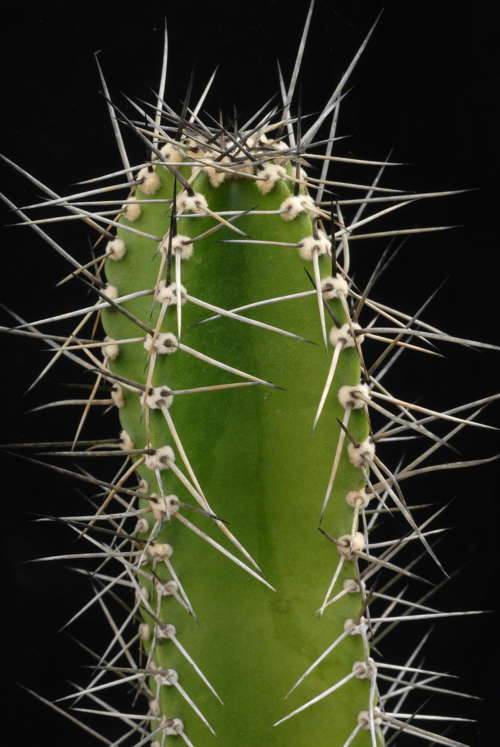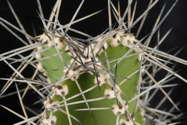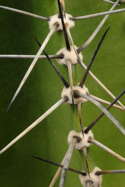This tropical columnar cactus has been variously classified as Anisocereus or Pterocereus, both genera considered by some to be synonyms of Pachycereus, or as a synonym of Pachycereus gaumeri. In a recent revision of Pachycereus (Systematic Botany (2009), 34(1): pp. 68–83) Mexican cactologists Salvador Arias and Teresa Terrazas make a compelling argument based on morphological features and preliminary molecular evidence for a more homogeneous (and monophyletic) grouping of just five species in Pachycereus: P. pecten-aboriginum, P. grandis, P. pringlei, P. weberi and P. tepamo. These species are united by their robust columnar habit, floral characteristics and a narrow, wooly groove between areoles of mature stems. Pterocereus, then, is a genus they suggest should be resurrected and most cactus collectors will agree that it bears little resemblance to those retained in the more narrow circumscription of Pachycereus. In the same article, Arias and Terrazas publish the new combination used for this offering. Like Pterocereus gaumeri subsp. gaumeri (ISI 97-45, still available for $6), restricted to the Yucatan peninsula, the stems of this native of the more southerly Chiapas state are narrowly three to four ribbed as implied by the generic name (Ptero is Greek for a wing or a fin). However, in subsp. foetidus the ribs are lined with stout spines, black aging gray, to 5 cm (2") long compared to the nearly spineless subsp. gaumeri. The epidermis is also a darker green. Flowers are rarely seen in cultivation compared with subsp. gaumeri which itself is rarely seen fully open. That privilege seems to be reserved for the bat pollinators that are attracted by a musty aroma, which apparently is shared by subsp. foetidus if the subspecific epithet is any indication (from the Latin word for fetid). We offer rooted cuts of HBG 51944, obtained from John Bleck July 6, 1984. According to Charlie Glass (as recorded in our accession record in Feb, 1994) this is undoubtedly the collection he made with Thomas MacDougall at the type locality, a few miles east of Tuxtla Gutierrez, Chiapas, Mexico. $10.

Published in the Cactus and Succulent Journal, Vol. 87 (3), May - June, 2015


